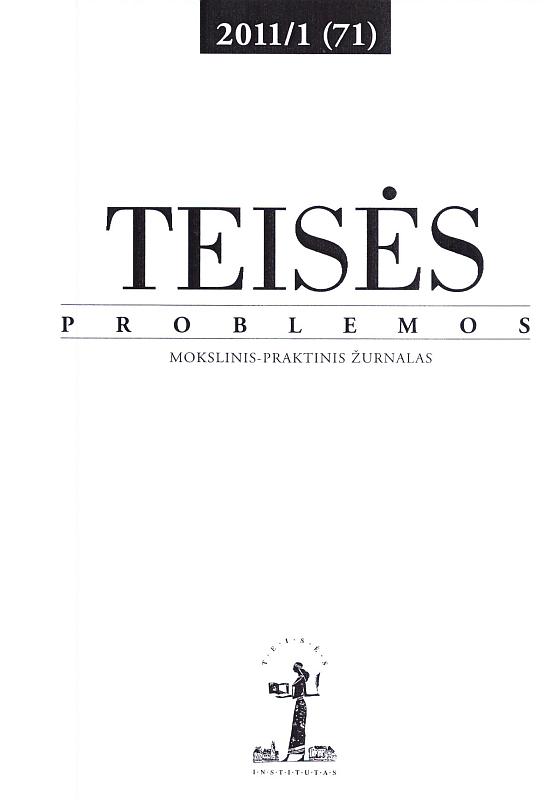Religija kaip socialinės kontrolės veiksnys ir jos prevencinis poveikis nusikalstamumui
Religion as Element of Social Control and its Preventive Effect on Crime
Author(s): Simonas NikartasSubject(s): Criminology, Social Norms / Social Control, Sociology of Religion
Published by: Lietuvos teisės institutas
Summary/Abstract: Article is devoted to an analysis of the influence of religion, as a factor of informal socia control, in preventing crime as well as of the main forms and conditions of this influence. Preventive effect of religion is being analysed on three levels: religion as a social phenomenon, individual religiosity and targeted religious activities. Influence of religion as a social phenomenon on crime prevention is being analyzed on these aspects: social environment (macro), relation between micro and macro environment, family environment and effect of religion subject to the nature of the offence and person’s age. Conclusion of the author that the effect of religion on the macro level (society) depends on how much religiosity is integral into the social fabric is based on the theories of E. Durkheim an R. Stark. Studies on the effect of religion in the context of macro and micro socio-cultural environment show, that preventive effect of religion is efficient in case religion operates in person’s social microenvironment while this social microenvironment is disorganized. In context of family environment the important variable is homogeneity, which, based on scientific research, has a reverse proportionality relationship with juvenile delinquency. In terms of dependence on the nature of offence and person’s age, it should be noted that religiosity can have a preventative effect upon victimless crimes and on juveniles. Preventive role of the religious identity is being analysed on individual level. A survey of research literature reveals that real religious identity, evidenced by the forms of internalization and externalization of religion, may have a significant role as a measure of social control. Interaction of these forms can be an important factor dealing with juvenile delinquents, meanwhile externalisation of religion (external religious activity) as a variable is extremely important for prevention of adult criminal behaviour. Analysis on the level of targeted religious activities is concentrated upon the impact of religious education programs practiced in USA prisons on convicted person’s recidivism after release. Analysis of research shows, that religious programs can have a significant preventive effect on recidivism of convicts, particularly during the first year after release.
Journal: Teisės problemos
- Issue Year: 2011
- Issue No: 71 (1)
- Page Range: 109-125
- Page Count: 17
- Language: Lithuanian

